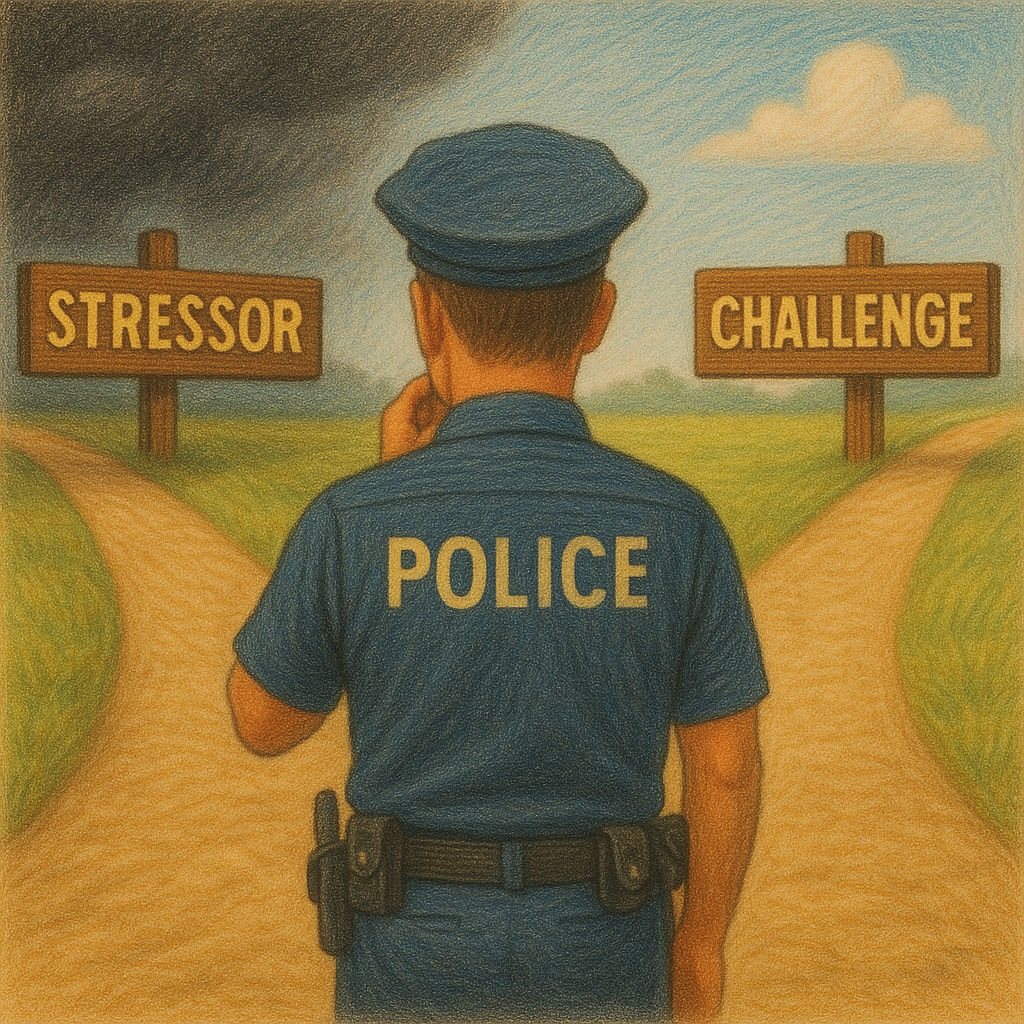Every first responder knows the feeling, that moment when a call comes in and your body instantly shifts into high gear. So why is it that two first responders can respond to the exact same call, yet one walks away energized while the other feels completely drained. The difference isn’t in the call itself, it’s in how each person’s mind interprets what just happened.
Understanding the distinction between a stressor and a challenge could be the key to transforming how you experience your most difficult days on the job and in life.
What Makes Something a Stressor vs. a Challenge?
A stressor is simply a demand that causes stress. When you view something as a stressor, it feels like a difficulty that produces negative effects and drains your energy. Think about that frequent flyer you’ve been called to see for the third time this week, someone who clearly doesn’t need an ambulance but keeps calling anyway. If you approach that call viewing it as a stressor, you’ll likely feel frustrated, annoyed, and depleted by the encounter.
A challenge, however, is different. Challenges are motivating and re-energizing, usually free from negative effects. The same frequent flyer call could be viewed as a challenge, an opportunity to practice your patient assessment skills, work on your bedside manner, or even problem-solve how to connect this person with resources they actually need.
The remarkable thing is that the situation hasn’t changed at all. The only difference is your perception.
What Determines Your Response?
Several factors influence whether something becomes a stressor or a challenge in your life:
- The type and intensity of what you’re facing plays a role.
- How capable you feel in handling it significantly impacts your stress response.
- Your support system matters enormously.
- Your personality characteristics also play a role.
The Personal Nature of Stress
Your stress response is as unique as your fingerprint. It’s shaped by your personal history, beliefs, values, and past experiences. This is why comparing how you handle stress to how others handle it isn’t helpful or fair.
Consider how your life experiences have added layers to every call you run. When you first started in emergency services, you approached calls thinking about protocols and procedures. But as life happens, those calls become more personal. The domestic violence call hits differently after you’ve experienced relationship struggles. The elderly fall becomes more emotional when you’re caring for aging parents. The pediatric emergency carries new weight after you become a parent yourself.
The calls haven’t changed, but you have. Your life experiences have given you deeper understanding and empathy, but they’ve also created new emotional connections to the work.
Practical Application
Start paying attention to your internal dialogue during challenging situations. Notice when you automatically label something as a “problem” versus an “opportunity.” Ask yourself:
- What can I learn from this situation?
- How might this experience help me in the future?
- What skills am I developing by working through this?
- How does successfully handling this challenge build my confidence?
Remember, the same exact situation can be a stressor or a challenge, depending on how you choose to view it. While you can’t control everything that happens during your shift, you can control the meaning you give those events and how you respond to them.

